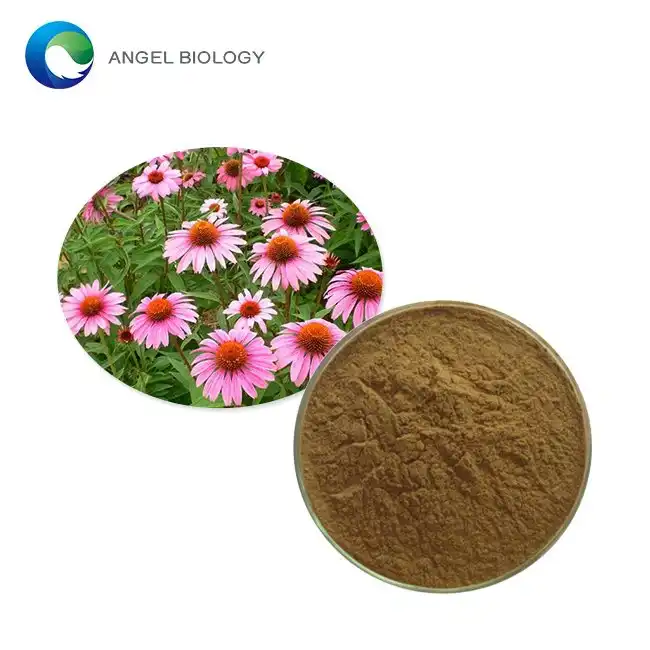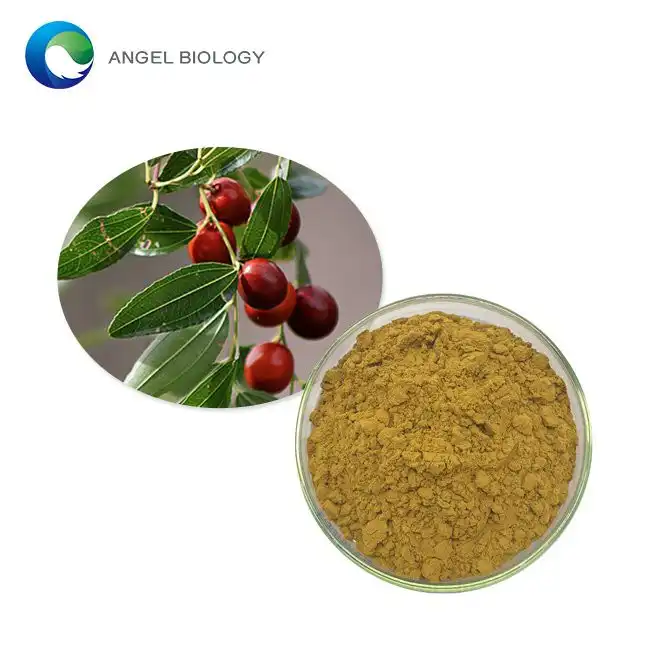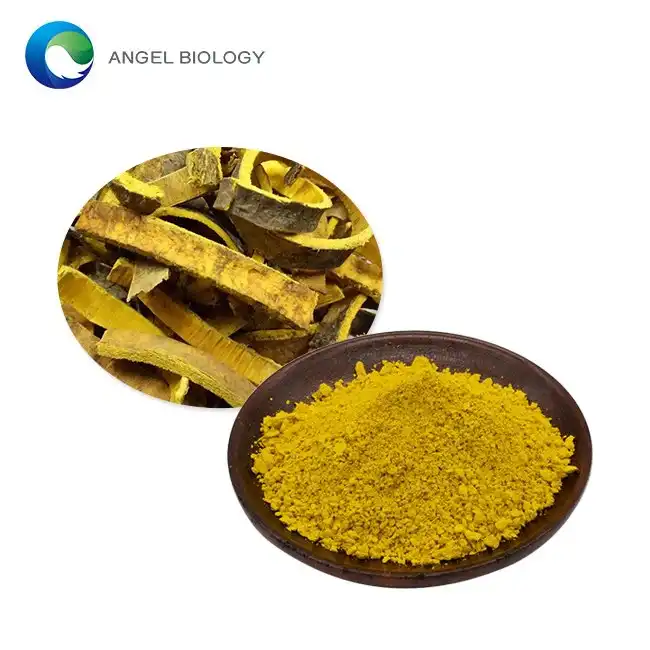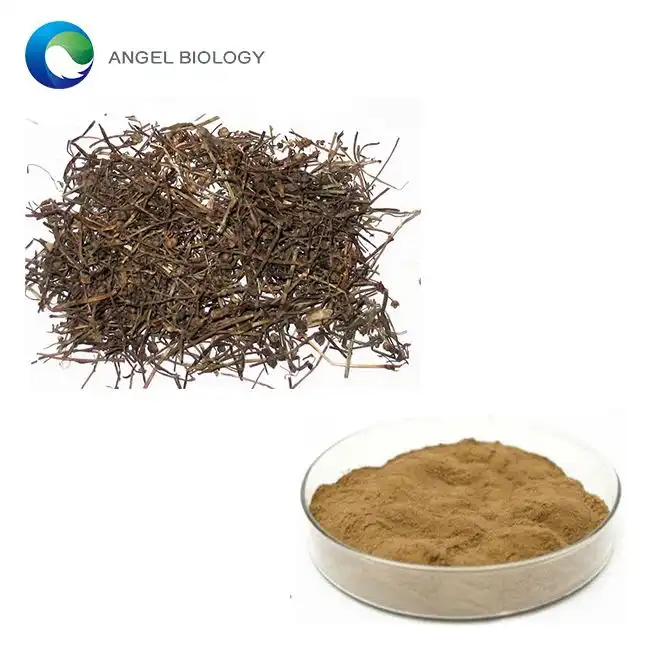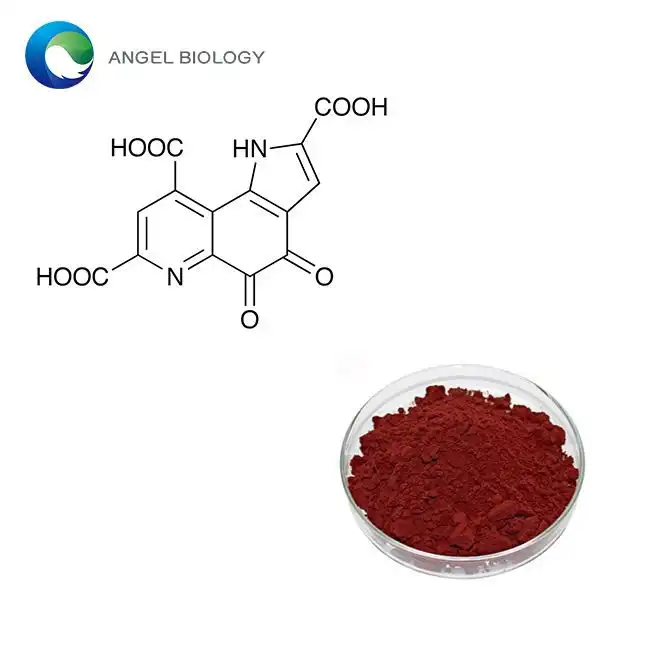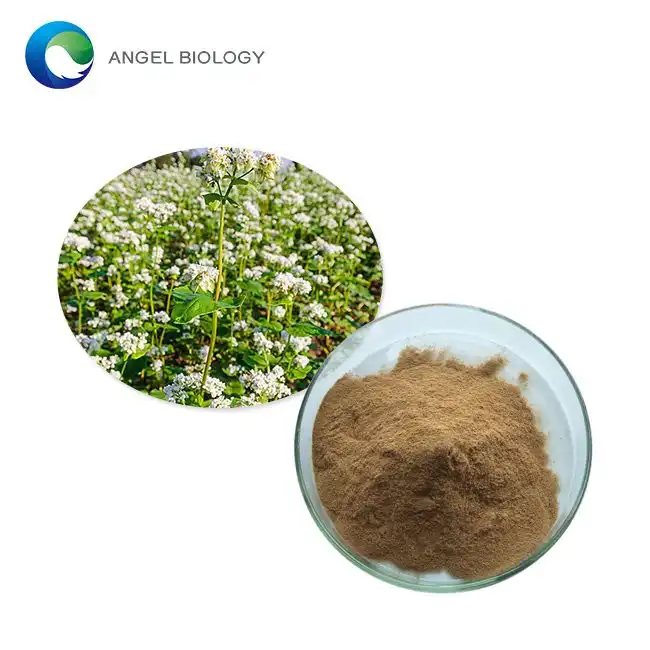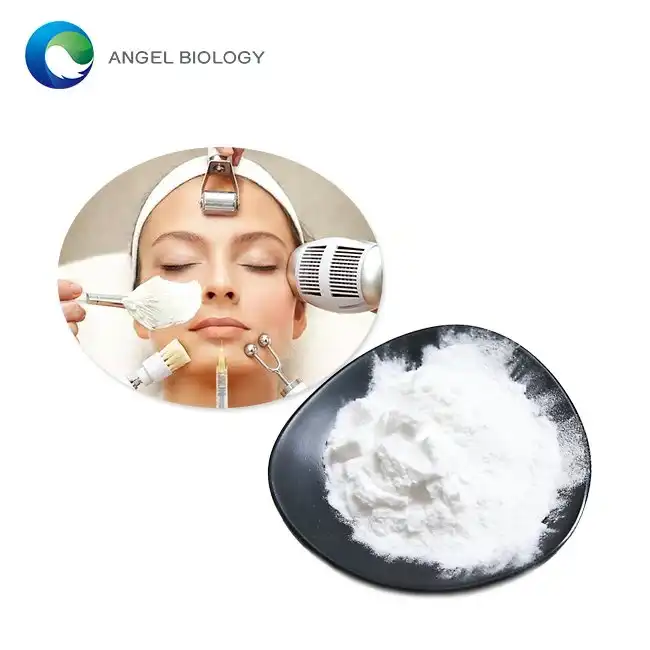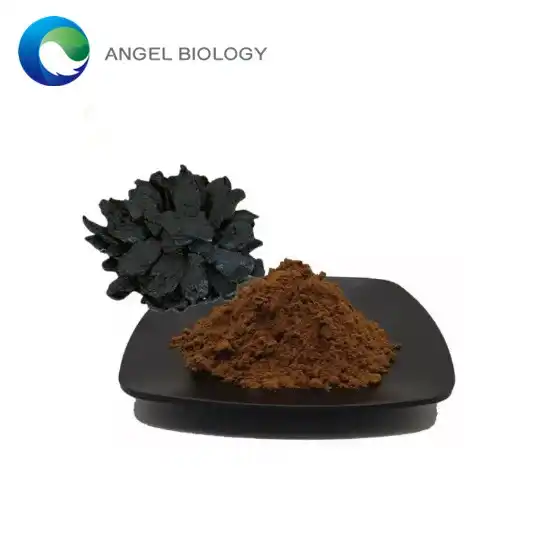Astaxanthin Powder Benefits: Antioxidant Effects & Applications
Astaxanthin, a powerful antioxidant carotenoid, has garnered significant attention in the health and wellness sphere. This vibrant red pigment, found naturally in certain algae and seafood, offers a myriad of potential benefits when consumed as a supplement. In this comprehensive guide, we'll explore the fascinating world of astaxanthin powder, delving into its antioxidant prowess and diverse applications.
Skin Health: Can Astaxanthin Powder Reduce UV Damage?
The sun's ultraviolet (UV) rays can wreak havoc on our skin, accelerating aging and increasing the risk of skin cancer. Enter astaxanthin, a potent ally in the fight against UV damage. Research suggests that this remarkable compound may offer substantial photoprotection, helping to shield our skin from the harmful effects of sun exposure.
Astaxanthin's unique molecular structure allows it to span cell membranes, providing comprehensive protection against oxidative stress. This characteristic enables it to neutralize free radicals both on the surface and within skin cells, potentially mitigating UV-induced damage more effectively than other antioxidants.
A study published in the Journal of Cosmetic Dermatology found that oral supplementation with astaxanthin powder significantly improved skin wrinkle, age spot size, and skin texture. Participants who took astaxanthin also reported increased skin elasticity and moisture content. These findings suggest that astaxanthin may not only protect against UV damage but also help reverse existing signs of photoaging.
Moreover, astaxanthin has been shown to suppress the production of inflammatory mediators in skin cells exposed to UV radiation. This anti-inflammatory action may help reduce redness, swelling, and discomfort associated with sunburn, further highlighting its potential as a skin-protective agent.
While astaxanthin shows promise as a natural sunscreen from within, it's crucial to note that it doesn't replace the need for topical sunscreen. Rather, it may complement your sun protection regimen, offering an additional layer of defense against UV-induced skin damage.
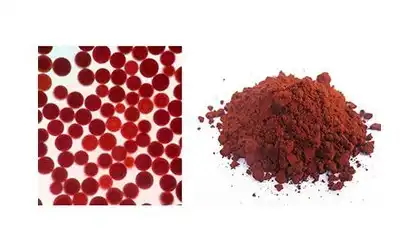
Astaxanthin Powder for Athletes: Performance & Recovery Benefits
Athletes and fitness enthusiasts are constantly seeking ways to enhance performance and expedite recovery. Astaxanthin powder has emerged as a potential ergogenic aid, offering a range of benefits that may support athletic endeavors.
One of the primary ways astaxanthin may boost athletic performance is by mitigating exercise-induced oxidative stress. Intense physical activity generates an abundance of free radicals, which can contribute to muscle damage and fatigue. Astaxanthin's potent antioxidant properties may help neutralize these free radicals, potentially reducing muscle soreness and accelerating recovery.
A study published in the International Journal of Sports Medicine examined the effects of astaxanthin supplementation on cycling performance. The researchers found that participants who took astaxanthin for four weeks showed significant improvements in power output and time to exhaustion compared to the placebo group. These results suggest that astaxanthin may enhance endurance and delay fatigue during prolonged exercise.
Furthermore, astaxanthin's anti-inflammatory properties may be particularly beneficial for athletes. Exercise-induced inflammation is a normal physiological response, but excessive or prolonged inflammation can impair recovery and performance. By modulating inflammatory pathways, astaxanthin may help athletes recover more quickly between training sessions and competitions.
Interestingly, some research indicates that astaxanthin may also support fat metabolism during exercise. A study in the journal Nutrients found that astaxanthin supplementation increased fat utilization during moderate-intensity exercise in young men. This effect could potentially lead to improved endurance and body composition over time.
While more research is needed to fully elucidate astaxanthin's effects on athletic performance, the current evidence suggests it may be a valuable addition to an athlete's supplement regimen. As always, athletes should consult with a healthcare professional or sports nutritionist before adding new supplements to their routine.
Neuroprotective Effects of Astaxanthin Powder: Research Update
The brain, being highly susceptible to oxidative stress, stands to benefit greatly from potent antioxidants like astaxanthin. Recent research has shed light on the potential neuroprotective effects of astaxanthin powder, offering hope for cognitive health and neurological disorders.
One of the most intriguing aspects of astaxanthin is its ability to cross the blood-brain barrier. This unique property allows it to exert its antioxidant and anti-inflammatory effects directly within brain tissue, potentially protecting neurons from oxidative damage and inflammation-induced degeneration.
A study published in the journal Brain Research investigated the effects of astaxanthin on cognitive function in aged mice. The researchers found that astaxanthin supplementation improved spatial memory and reduced oxidative damage in the brain. These findings suggest that astaxanthin may have potential in mitigating age-related cognitive decline.
Furthermore, astaxanthin has shown promise in models of neurodegenerative diseases. Research in the Journal of Clinical Biochemistry and Nutrition demonstrated that astaxanthin protected against 6-hydroxydopamine-induced dopaminergic neuron loss in a model of Parkinson's disease. This neuroprotective effect was attributed to astaxanthin's ability to suppress oxidative stress and apoptosis.
Astaxanthin's potential extends beyond neuroprotection to neuroenhancement. Some studies suggest that it may improve cognitive function even in healthy individuals. A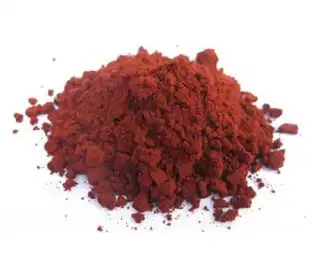 randomized, double-blind, placebo-controlled study published in the Journal of Clinical Biochemistry and Nutrition found that astaxanthin supplementation improved cognitive function in healthy older adults, particularly in the domains of attention and memory.
randomized, double-blind, placebo-controlled study published in the Journal of Clinical Biochemistry and Nutrition found that astaxanthin supplementation improved cognitive function in healthy older adults, particularly in the domains of attention and memory.
While these findings are promising, it's important to note that much of the research on astaxanthin's neuroprotective effects has been conducted in animal models or small-scale human studies. Larger, long-term clinical trials are needed to fully understand its potential benefits for brain health in humans.
Nevertheless, the current body of research suggests that astaxanthin powder may be a valuable tool in supporting cognitive function and potentially protecting against neurodegenerative diseases. As our understanding of astaxanthin's mechanisms of action in the brain grows, we may uncover even more applications for this remarkable compound in the realm of neurological health.
Conclusion
The multifaceted benefits of astaxanthin powder span from skin health to athletic performance and neuroprotection, showcasing its potential as a versatile supplement for overall wellbeing. As research continues to unravel the full spectrum of astaxanthin's effects, it's clear that this powerful antioxidant holds significant promise in various aspects of health and wellness.
Are you ready to experience the potential benefits of astaxanthin powder for yourself? At Angelbio, we're committed to providing high-quality, natural ingredients that support your health goals. Whether you're looking to enhance your skin health, boost your athletic performance, or support your cognitive function, our premium astaxanthin powder may be just what you need. Don't miss out on this powerful antioxidant - reach out to us today to learn more about incorporating astaxanthin into your wellness routine.
For more information or to place an order, please contact us at angel@angelbiology.com. Our team of experts is ready to assist you in finding the perfect solution for your health and wellness needs.
References
1. Tominaga, K., et al. (2012). Cosmetic benefits of astaxanthin on humans subjects. Acta Biochimica Polonica, 59(1), 43-47.
2. Aoi, W., et al. (2003). Astaxanthin limits exercise-induced skeletal and cardiac muscle damage in mice. Antioxidants & Redox Signaling, 5(1), 139-144.
3. Wu, H., et al. (2014). Astaxanthin as a potential neuroprotective agent for neurological diseases. Marine Drugs, 12(12), 6102-6116.
4. Kidd, P. (2011). Astaxanthin, cell membrane nutrient with diverse clinical benefits and anti-aging potential. Alternative Medicine Review, 16(4), 355-364.



